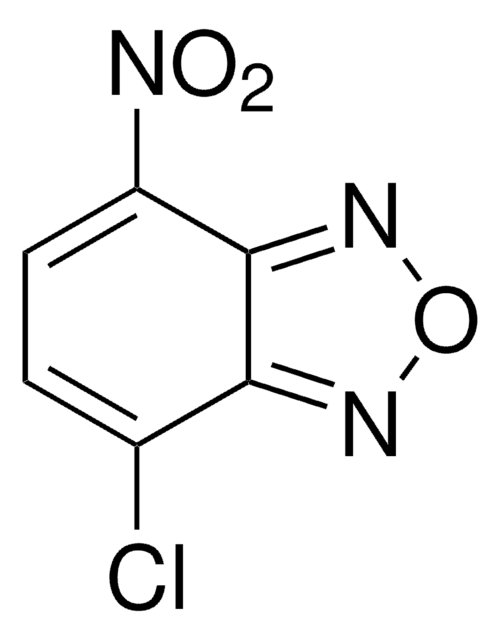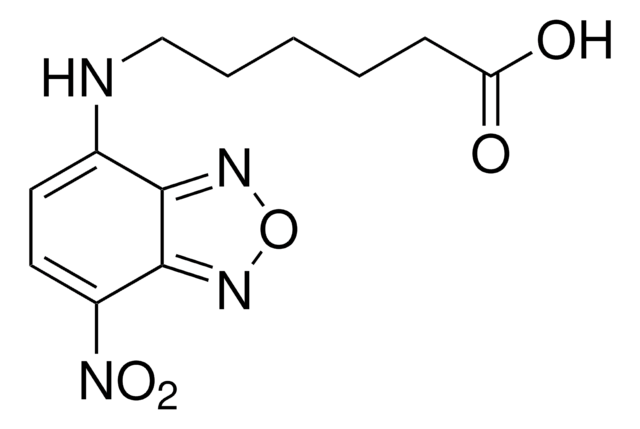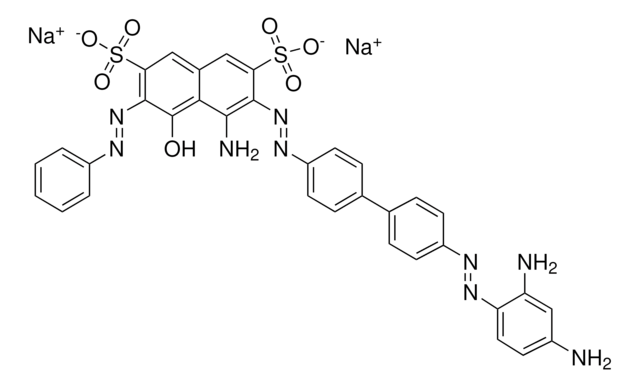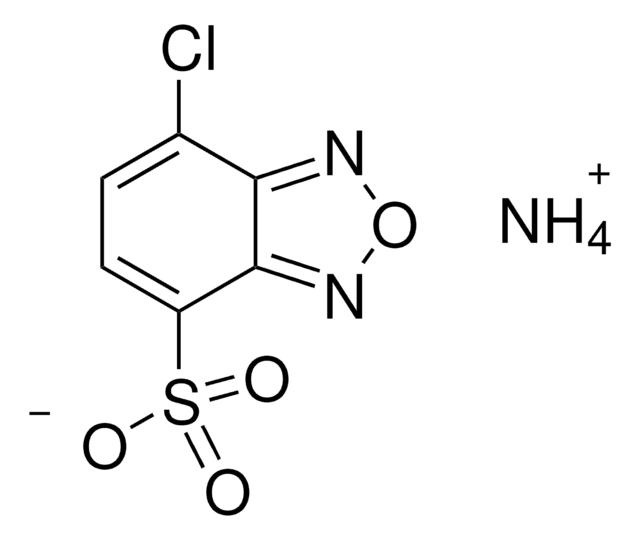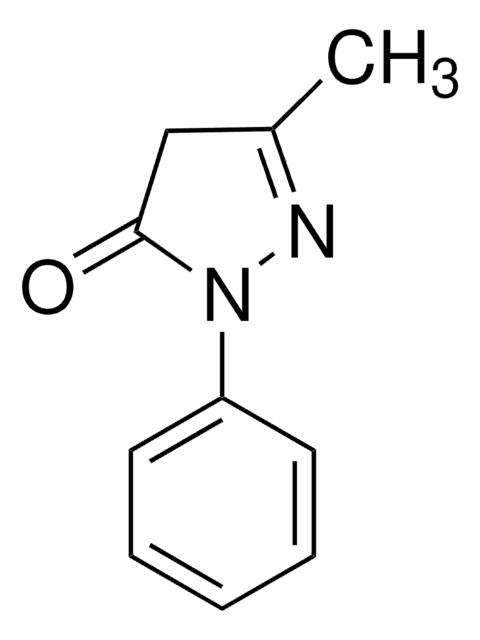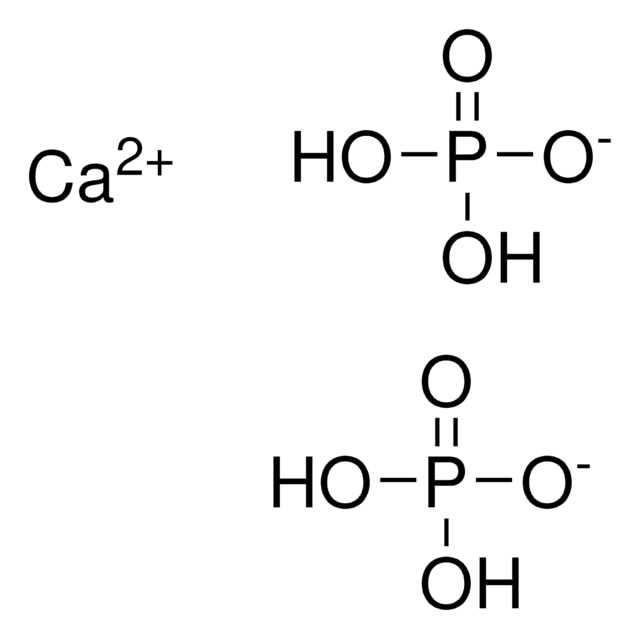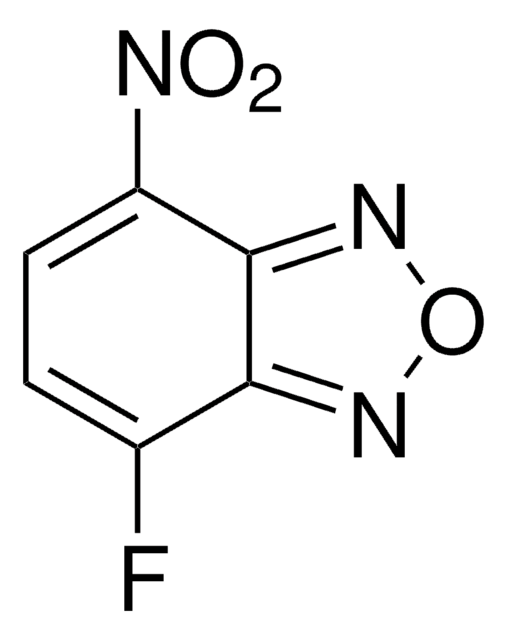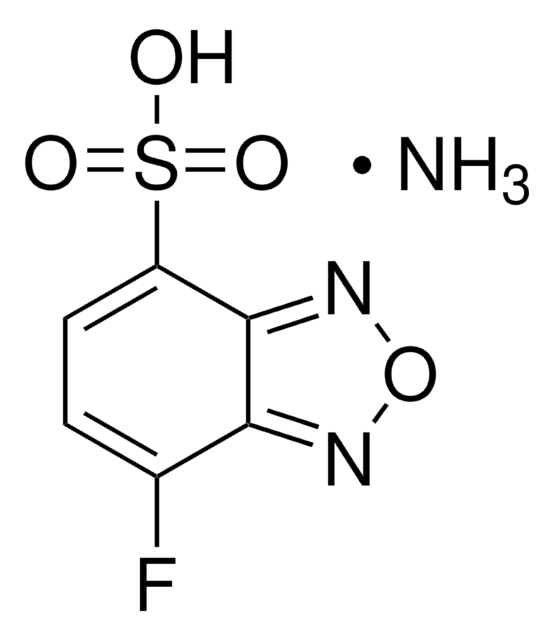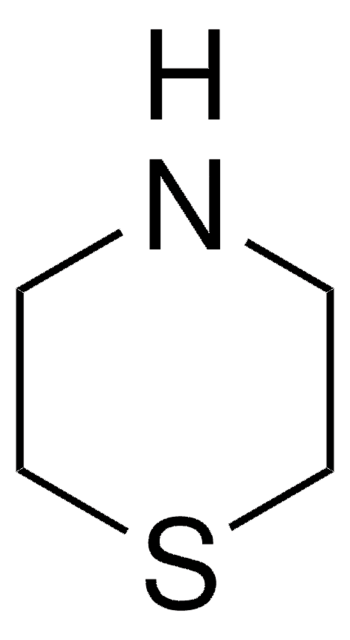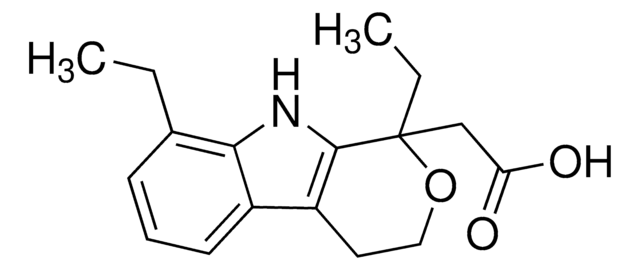25455
4-Chloro-7-nitrobenzofurazan
BioReagent, suitable for fluorescence, ≥97.0% (HPLC)
Synonym(s):
4-Chloro-7-nitro-1,2,3-benzoxadiazole, NBD-chloride
About This Item
Recommended Products
product line
BioReagent
Assay
≥97.0% (HPLC)
mp
97-100 °C
97-99 °C (lit.)
fluorescence
λex 336 nm in methanol
λex 420 nm; λem ~540 nm in ethanol (after derivatization with glycine)
suitability
suitable for fluorescence
SMILES string
[O-][N+](=O)c1ccc(Cl)c2nonc12
InChI
1S/C6H2ClN3O3/c7-3-1-2-4(10(11)12)6-5(3)8-13-9-6/h1-2H
InChI key
IGHBXJSNZCFXNK-UHFFFAOYSA-N
Looking for similar products? Visit Product Comparison Guide
Application
Signal Word
Warning
Hazard Statements
Precautionary Statements
Hazard Classifications
Eye Irrit. 2 - Skin Irrit. 2
Storage Class Code
11 - Combustible Solids
WGK
WGK 3
Personal Protective Equipment
Choose from one of the most recent versions:
Already Own This Product?
Find documentation for the products that you have recently purchased in the Document Library.
Customers Also Viewed
Our team of scientists has experience in all areas of research including Life Science, Material Science, Chemical Synthesis, Chromatography, Analytical and many others.
Contact Technical Service